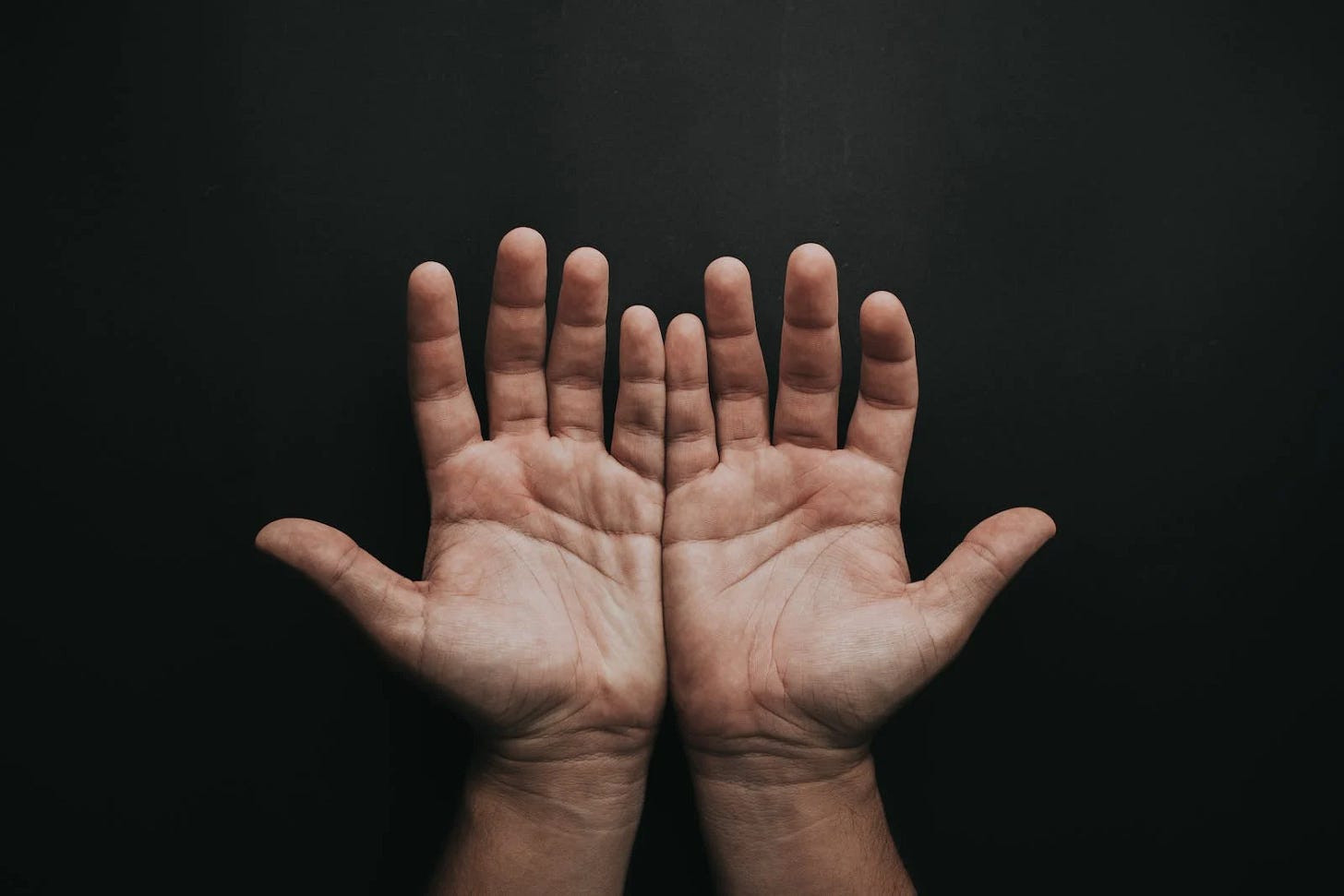The posts and lessons that I’m gathering here are concerned with helping you to make connections between self-awareness and agency, using movement a mode of inquiry and exploration. This approach is founded on the belief that our ability to act is rooted in our ability to perceive what’s happening. Moshe Feldenkrais’ work was committed to the idea that one becomes better at choosing how to behave through attending to what it feels like to move and live. He famously said, ‘If you know what you’re doing, you can do what you want. If you don’t know what you’re doing, you cannot do what you want.’
In my first posts, I focused on attending to the felt experience of comfort and self-care. I started there because I wanted readers to interrogate how often we choose to push beyond what feels comfortable - estranging ourselves from the sensory signals and feedback that situate us in the world. It’s important to note, however, that comfort is not (necessarily) an end in itself.
The pursuit of comfort and ease that I’ve been advocating is not about wrapping yourself in cotton wool. Instead, it’s about developing the awareness necessary for finding agency in difficult or novel circumstances. Comfort can be understood as the sensory background necessary for noticing and attending to the demands that the world makes on us. When we encounter novel or demanding circumstances, we experience stress and excitement - qualities that we can differentiate from feelings of habituation and comfort. This can be difficult for us, but it’s important to note that stress is one of the ways in which we initiate adaptation. For example, when you lift a heavy weight to the point of exhaustion you stress your muscles. This triggers adaptation, which makes your muscles grow.
However, in order to overcome challenges, we need to know how to manage the demands and stresses they place on us. To be capable, or to have agency, is to be able to respond to the demands that stress us without becoming overwhelmed. But how do we know that the stress we encounter is a valuable opportunity for adaptation? And how do we know that we are adapting to stress rather than dissociating from discomfort?
For me, this raises the question of whether adaptability has an affective quality. It makes me wonder if we can define what learning or adaptation feel like.
How do we know that we are learning or changing?
One simple response to this question is to recognise that as we learn new things the choices available to us increase. This would suggest that the feeling of learning and adaptation is a feeling of spaciousness. Maybe also a feeling of empowerment.
But it’s more complicated that, because it’s also clear that in order to learn we sometimes have to go through phases of frustration and confusion. Feldenkrais used to say, ‘You don’t know what you don’t know.’ I think what he meant was that we can’t understand what an adaptation might feel like until it happens. It’s only when we have a new skill that we can truly understand why it might be useful.
So this week’s lesson is an invitation to spend some time thinking about what it feels like to learn (focusing on the hands). It’s about attending to the feelings of uncanniness and novelty that the process of learning brings - finding ways to engage with those feelings as opportunities for adaptation. It’s a very simple lesson that you can do lying down or in sitting.
Let me know in the comments what feelings it brings up for you.



